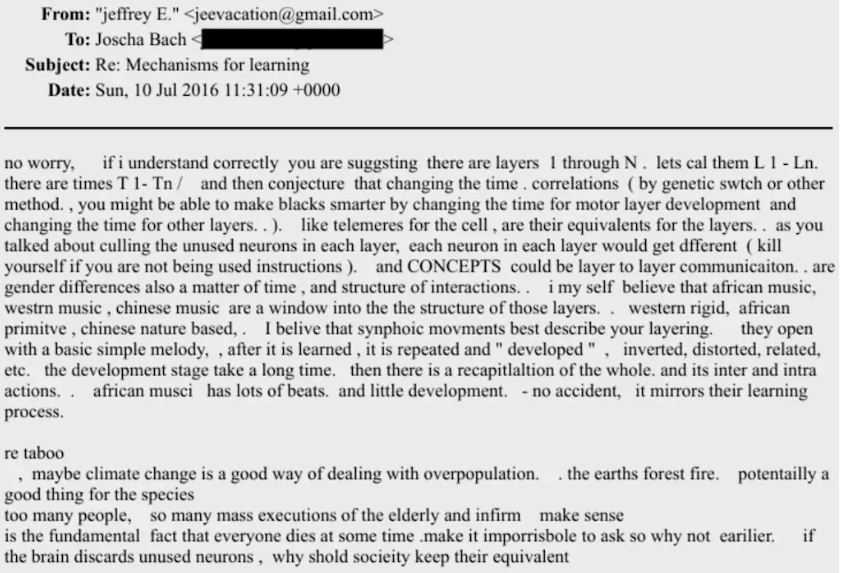How Fast Is Climate Change Accelerating?
Nonlinear Climate Acceleration
Evidence for Non-Linear Forcing, Collapsing Doubling Times, and Runaway Feedback Dynamics
By Daniel Brouse and Sidd Mukherjee
A: Great question. Right now, the acceleration of warming impacts is roughly 2^6‑fold per decade — far faster than anything observed during the Younger Dryas, Older Dryas, or indeed any period in the last hundreds of millions of years. This isn’t just fast — it’s geologically unprecedented.
Two independent research trajectories converged in a striking manner. In the late 1990s,
separate investigators identified measurable acceleration in climate system impacts based on
empirical datasets. Decades later—again independently and at roughly the same time—both lines
of inquiry expanded to examine the emergence of what can be described as ecofascist ideology
within segments of elite discourse.
The scientific trajectory concerned nonlinear acceleration in physical systems.
The later inquiry concerned ideological responses that appear to frame climate destabilization
not solely as a crisis to prevent, but in some cases as a demographic or geopolitical corrective.
In the late 1990s, we analyzed the doubling time of sea-level rise (SLR) to determine
whether climate change impacts were accelerating. Rather than assuming linear progression,
our approach focused on nonlinear dynamics and second-order rate-of-change analysis.
The core mathematical insight governing acceleration is:
Doubling Time Formula (Discrete Growth): Td = ln(2) / ln(1 + r)
Where:
If the growth rate itself increases over time due to feedback amplification, then:
Continuous Form: Td(t) = ln(2) / k(t)
Where k(t) represents a time-dependent growth constant.
Feedback loops modify k(t), collapsing doubling times.
By the early 2000s, multiple independent datasets supported nonlinear acceleration, including:
Our analysis indicates that observable climate impact doubling times declined from
approximately ~100 years (pre-industrial baseline), to ~10 years by 2000,
and to approximately 2–5 years by 2024 in certain high-sensitivity indicators.
Under exponential acceleration, cumulative impacts could increase by a factor of 64 within a decade
(26) if doubling intervals compress to ~1.5–2 years.
Such compression signals entry into a regime of chaotic instability,
consistent with nonlinear feedback dynamics.
In 1998–1999, Michael E. Mann and colleagues published the now well-known
“hockey stick” temperature reconstruction, demonstrating relative Northern Hemisphere
temperature stability over the previous millennium followed by a sharp 20th-century increase.
Radiative forcing provides the physical mechanism underlying this acceleration.
CO₂ Radiative Forcing Formula: ΔF = 5.35 ln(C / C0) [W/m²]
Where:
This logarithmic forcing relationship, combined with observed increases from
~280 ppm to >420 ppm, yields measurable planetary energy imbalance.
Satellite radiometry and ocean heat content data confirm persistent positive forcing.
Decades later, independent research identified ideological currents within elite discourse
that frame climate destabilization as potentially beneficial in demographic terms.
This worldview—often termed ecofascism—reinterprets environmental catastrophe
as a selective corrective, particularly affecting vulnerable populations.
Publicly released materials in the Epstein files include statements attributed to Jeffrey Epstein such as:
In commentary regarding these materials, climate scientist Michael Mann stated:
The convergence is notable: accelerating physical destabilization accompanied by
ideological normalization of selective harm.
The scientific evidence for nonlinear acceleration in climate impacts is robust,
grounded in radiative transfer physics, isotopic carbon analysis, ocean heat accumulation,
and cryospheric mass balance observations.
The ideological evidence, while distinct from the physical science,
raises serious ethical and governance concerns when climate destabilization
is reframed as advantageous for population reduction.
These domains—physical acceleration and ideological normalization—should not be conflated,
but neither should their convergence be ignored.
The empirical evidence for accelerating climate dynamics has strengthened over three decades.
Simultaneously, documented rhetoric in certain elite contexts reveals a willingness to reinterpret
climate destabilization through demographic or authoritarian lenses.
The physical science demonstrates measurable nonlinear acceleration.
The ideological trajectory warrants equally rigorous scrutiny.
Ongoing study
Q: How fast is climate change accelerating?
Abstract
Emerging evidence from observational climate science, global satellite datasets, and physical modeling shows that climate change is not progressing linearly but is instead accelerating in a non-linear, often exponential manner. The concept of "doubling time"--commonly applied in population biology and atmospheric physics--has become a central metric for gauging the rate of intensification of climate-forced phenomena. Over three decades of analysis, we find that doubling times across major climate indicators are collapsing, with profound implications for ecosystem stability, infrastructure resilience, global health, and habitability. This paper synthesizes multi-decadal evidence supporting the hypothesis that climate change is accelerating at a rate faster than previously predicted, driven in large part by interconnected tipping points and feedback loops.
1. Introduction
2. The Nonlinear Acceleration Hypothesis
3. Radiative Forcing and the Hockey Stick Reconstruction
4. Convergence with Ecofascist and Eugenics Ideologies
“I liked the argument that more CO₂ is good for plants.”
“Maybe climate change is a good way of dealing with overpopulation — the earth’s forest fire. Potentially a good thing for the species.”
“Executions of the elderly and infirm make sense.”
“Citing climate change as a solution to overpopulation isn’t a totally surprising position for someone like Epstein... The overpopulation quote is entirely keeping with the ethos of this group.”
5. Discussion
6. Conclusion
References
Climate-Working-Group.html
https://www.fastcompany.com/91490280/epstein-files-how-ultra-wealthy-peddle-climate-denialism
